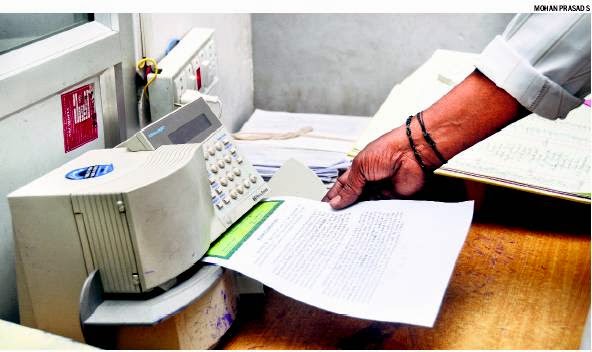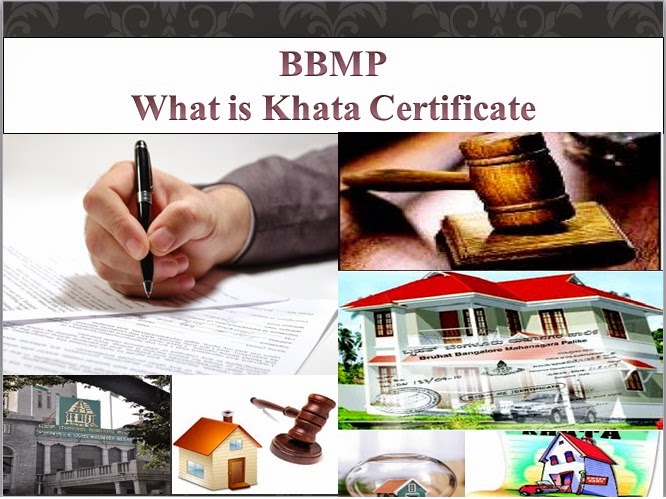Common man needs small denomination of the stamp papers for various purposes like affidavit, Rental agreements, agreements, undertaking, power of attorney, bonds, memorandum of understanding etc. Public needs stamp duty of the denomination of Rs20, 50,100 & 200 for executing affidavits, rental agreement, Indemnity Bonds and Sale Agreement respectively . These are all the common requirement of stamp duties for giving legal sanction to any kind of documents. Now-a-days the government departments are insisting for obtaining affidavits and indemnity bond for various purposes.
Non-availability
Previously, department of stamp duty was appointing the authorized stamp vendors to sell the stamp papers for the above said documentation purpose. It was like a public fare price shops, wherein such stamp papers were easily available not only in all the important places but also in a very remote and interior villages. Infact, Stamp papers were available even in the late night also. Any understanding between the parties will be reduced in writing on the stamp paper and would be signed on that, as the same will be binding on both the parties. After the Telgi scam, from 01/04/2003, using stamp papers for the purpose of any documentation has been totally prohibited in Karnataka.
S.B.M.paper
After the amendment of Section 10A of the Karnataka Stamp Act, 1957, provision has been made for payment of stamp duty by DD/Pay Order or Bankers Cheque, drawn in favour of the concerned Sub-Registrar office for sale deeds and other documents. Obtaining stamp papers of small denomination, only two option are available. One is, franking the stamp paper in the concerned sub-registrar office and another one is purchasing the document sheet from the state bank of Mysore. Unfortunately, both the modes of obtaining stamp papers are very tedious since it involves lot of procedure and formalities. Further, the said facility is avaible to the public only for 5 to 6 hours every day. Infact only in few branches of State bank of Mysore the facility of issuing stamp papers are available. In such case, public has to fill up the challan and mention the denomination for which stamp paper is required and accordingly has to pay the requisite commission charges on such amount and later has to stand on a very long queue. So getting a stamp paper in SBM is a time consuming process. Again, such authorized branches of State bank of Mysore are not much interested in issuing this stamp paper rather they are concentrating more on their banking business. Infact, among those authorised branches also, only one or two banks only will issue the stamp paper on that particular date and priority will be given for their regular customers of the said Bank.
Franking procedure
The matter has to be typed in the white paper or document sheet and has to be submitted for franking along with the application, but without date and signature of the parties to the said document. This facility is available in certain particular sub registrar offices only such as Jayanagar, Gandhinagar, Basavanagudi, Shivajinagar, Rajajinagar, Kengari, Anekal Sub registrar offices, this facility is available and the franking time is only between 10:30 A.M. to 3:30 P.M, excluding the lunch hour. Rules and regulations varies from one sub-registrar office to the other. If the party produces the documents for franking, the concerned sub-registrar may refuse by various reasons. For example, if a person made a lease agreement more than 11 months, or that the agreement involves advance amount or if GPA is executed in favour of person other than his/her family member then it may be refused due to insufficient stamp duty. However, it is not a duty of the sub-registrar where the franking of the stamp duty is done to ascertain the stamp duty, but it is by the District Registrar or the Court which should decide the requisite stamp duty on any document at the time of presenting the documents.
Fake Papers
For the past two years, small denomination stamp papers were available easily everywhere. After abolition of the stamp papers, government has not taken any initiative to get the small denomination of the small papers by easy method, which has forced the public to buy the paper in the easiest way in the Taluk office and sub registrar offices entrance, which has resulted in the creation of lot of (small Telgis). Infact, two months ago, City Crime Branch (CCB) raided few of the Sub-registrar offices and Taluk Office and have booked 38 illegal franking, out of which 21 cases in City Civil Court premises and the rest at Mayo Hall, Yelahanka, Peenya, Yeshwanthpur, Koramangala and Jayanagar and arrested nearly 47 agents for having involved in the circulation of fake stamp papers and franking ink and pads, seals and franked blank sheets were also seized . These fake papers are either franked from their own franking machineries or from the original stamp papers, they are using color zerox. People should approach the authorised Sub Registrar offices to get the stamp paper embossed on the typed text before signature.
Franking machine
The Franking Machines shall be used for franking impression of Stamps on all kinds of instruments on which Stamp duty is payable under the provisions of Indian Stamps Act 1899 and the Karnataka Stamp Act, 1957 and the rules made there under.
Usage of Franking Machine by the Proper Officer
• Franking Machines shall be installed before the Proper Officer, at the office of the Superintendent of Stamps, Bangalore, Offices of the District Registrar and Offices of the Sub-Registrars at Gandhi Nagar, Jayanagar, Shivajinagar, Basavanagude, Rajajinagar and Kengeri or in any other offices as may be authorized by the Chief Controlling Revenue Authority in Karnataka for impressing Stamps indicating the payment of stamps duty on the instrument chargeable with duty and the operation of the same shall be under strict vigilance and supervision of the Proper Officer.
• Before the machine is put to use, the same shall be authorized loaded and sealed by Superintendent of Stamps or District Registrar, Assistant Commissioner of Stamps or such other officer authorized by Chief Controlling Revenue Authority and shall maintain Register in Form No.1 regarding loading and reloading and Form No.2 regarding return of the same and shall be scrutinized every month. In case of periodical loading of the machine, sanction from District Registrar is necessary if the same is being carried out by the officer other that those authorized to do such act, which shall be entered in Form No.3.
• The access code to the numeric of the Franking Machines shall be exclusively with the Superintendent of Stamps or District Registrar who shall be responsible for non disclosure, thereof to any person and who shall maintain a separate register in respect of each loading / reloading / incrementing of the amount.
• The Proper Officer shall ensure that the seals are not tampered with, in any way by any person or that machine is not handled by any un-authorized persons.
• The Proper Officer shall be responsible for the custody of the machine. A register in Form No.4, shall be maintained in which the meter reading are recorded separately, both at the commencement of the day and at the close of the day. The difference between the said readings shall be the total amount collected in respect of impressions franked.
• The parties desirous of having stamps impressed on all kinds of instruments shall make an application in Form No.5 along with the instrument and value of Stamps to be impressed, by Challan or Cash or Pay Order or Bankers Cheque or Demand Draft to the Proper Officer and on the receipt of the same, requisite amount of stamp duty will be embossed on the instrument and thereafter the Proper Officer shall affix his signature in the space provided on the impressed stamps, which shall be serially numbered and the particulars are to be entered in Form No.6.
• The authorized user shall at all reasonable times allow authorized office or the authorizing authority or the District Registrar to inspect the machine and collect records without notice.
• Franking or impressing of Stamp may be allowed up to any amount and such amount, as far as possible, has to be made on the right top corner of the first page of the instrument itself and has to be clear and in bright red colour only. Incase of any mistake or wrong in the amount impressed then that impression shall be torn from the instrument and pasted in the register of daily posting and shall be authenticated by the authorized user or proper officer. At the time of resetting, set off equal to the amount of wrong impression shall be given.
Thus, non-availability of small denomination stamp papers has forced the public either to approach the agents near court complex or sub-registrar office entrance or to enter into agreements in white paper, without paying requisite stamp duty, which, in turn, leads to lot of litigations. In order to solve this problem, the Department of Stamps and Registration has to provide sufficient modes for availing stamp papers of small denominations, which also generates more income for the Government.





